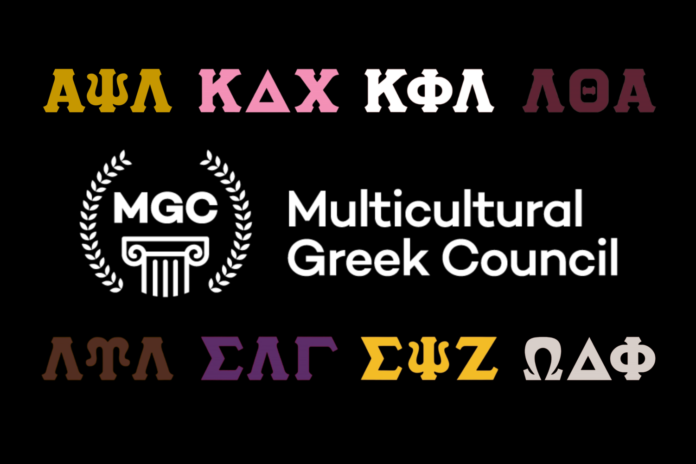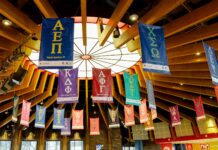At a predominantly white institution like Northwestern, some view Multicultural Greek Council chapters as a safe haven for multicultural students.
MGC has eight NU chapters recognized by Fraternity & Sorority Life and about 30 to 40 active members, according to MGC President and Bienen sophomore Magen Zeng.
“MGC as a whole is just a safe place to express yourself, feel like you’re not judged, and there’s power in unity,” Zeng said.
Omega Delta Phi President and Weinberg senior Alberto De La Isla said it is important for MGC to be a safe space at a majority white institution.
“(We are) trying to make sure that we are welcoming and very inclusive and a safe space for those who want to find community,” he said.
MGC supports minority and first generation-low income students who are typically left out of campus activities or feel out of place, according to De La Isla.
Kappa Phi Lambda President and McCormick sophomore Fay-Ling Laures said she joined her sorority because of its three pillars: sisterhood, cultural diversity and community service.
“I thought that it would be a really great way to make girlfriends, which I have been lacking in my engineering career,” Laures said. “We do work I care about and find meaningful.”
The organizations encourage professional success as well. Zeng said she joined Sigma Psi Zeta partially to follow the paths of successful alumni, like those who later attended Harvard Law School and the Massachusetts Institute of Technology for graduate school.
De La Isla said there is a strong focus within ODPhi to utilize the chapter’s resources to build up each individual member.
ODPhi member and Weinberg junior Marcelo Barillas said his fraternity not only offers him a space to meet students with similar backgrounds but it also bolsters his professional development through help from members and alumni with internship applications and interviews.
In recent years, the Abolish Greek Life movement at NU has pushed MGC chapters to reconsider their place on campus as Greek life organizations, according to De La Isla. However, he said AGL eventually shifted its focus away from MGC.
In response to the AGL movement, ODPhi and MGC have tried to return to their purpose of supporting those who feel out of place at a predominantly white institution, De La Isla said. ODPhi developed a social justice curriculum, covering topics such as racism and classism, which is an annual requirement for prospective and returning members alike.
MGC chapters — like other Greek life organizations on campus — still have required dues for their members, though some chapters aim to limit financial barriers for members.
At ODPhi, Barillas said he had to apply to the Student Activities Assistance Fund for financial assistance. He received a response to his application within two days.
“(The scholarship) really eliminates that barrier to entry, which makes it just the question of whether you have the time or not and whether you want to join the brotherhood,” Barillas said.
De La Isla said since many ODPhi members both at NU and nationally are first-generation, low-income students, expensive dues are a barrier that contradicts the chapter’s mission of inclusivity.
But, MGC’s overall fundraising often centers on philanthropic causes instead of efforts to pay for chapter members’ dues.
Sigma Psi Zeta, which focuses on combating violence against women, recently fundraised with candygrams for Sarah’s Circle, an organization aiming to support houseless women.
Zeng said she joined the sorority in part because of its efforts to prevent violence against women and support survivors’ efforts to speak out about their experiences.
“The little things we do like donating to women-oriented organizations, that’s what we can do, and I feel like it adds up,” Zeng said. “We’re a very small part of it, but I feel like it contributes to a larger cause, and that’s why it’s so important that we continue to spread our philanthropy.”
Every year, ODPhi invites the whole University to a Cesar Chavez Day, which hosts a speaker and sends students to multiple volunteering sites.
Zeng said one of her goals as president is to expand MGC’s physical presence on campus, beyond its office on the Norris University Center ground floor. She also hopes to hold more fun events and connect the MGC fraternities and sororities more.
However, despite the changes MGC hopes to implement, its founding mission remains the same.
“The most important thing is just giving a voice to everyone and advocating for the organizations on this campus,” Zeng said.






















